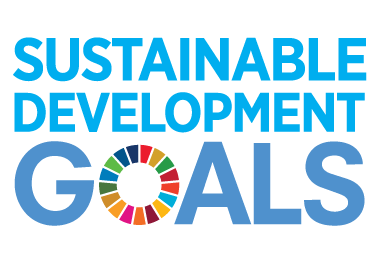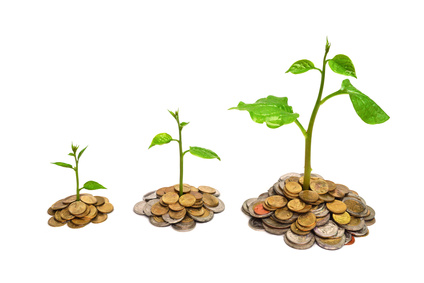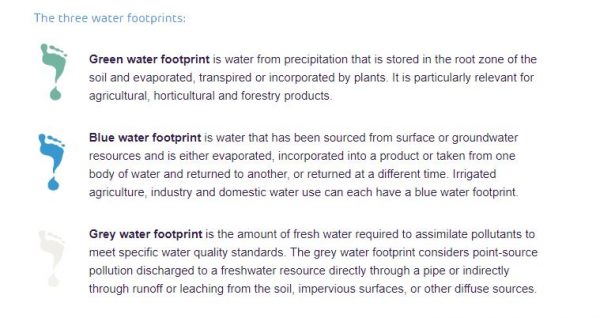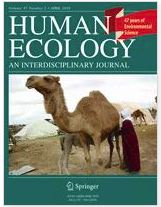In this blog, we show Argan oil is one of the, if not the, most sustainable vegetable oils. We also report on some of the frameworks on sustainability relevant to the Argan oil value chain.

The United Nations Sustainable Development Goals (SDGs) initiative put sustainability on the map. The SDGs, adopted in 2015 by 193 countries, are designed to achieve a “more sustainable future for all” by 2030. Therefore, it also will enable a better business environment.
Investopedia’s definition of sustainability is here:
Some perspectives: the World Economic Forum reported earlier this year impressive sustainability numbers. ‘The Business and Sustainable Development Commission has estimated that meeting the SDGs could add some $12 trillion and 380 million jobs to the global economy by the end of the next decade.
And about 70% of the business leaders say they integrate SDGs into their strategies; getting serious about SDGs.
Sustainability is a factor in every industry, not only Agri-business. As examples from the Finance industry: environmental, social, and governance assets under management are estimated to be as high as $22 trillion dollars.$82 trillion is committed to the UN Principles for Responsible Investment. $32 trillion is related to carbon pricing. The market for “green bonds” is growing exponentially.’

This momentum matters because financial market support will be essential in achieving the sustainable development agenda. Financial markets, especially investors, demand companies have a sustainable strategy, otherwise, they will not invest. Offsetting a company’s carbon footprint is not enough anymore.
That is why ‘rating’ or ‘certifying’ companies thrive and see double-digit growth for their companies. A standard needs certifications and benchmarks to be relevant.
The supply chain for Argan oil, cosmetic and culinary, can be valued as a hundred+ million dollar source: SULA NYC .
This is a modest component from a global vegetable oil production perspective.
However, within the Moroccan landscape, it’s a substantial provider of work and economic relevance.
Cosmetic argan oil is a staple in the global beauty industry in a wide variety of formulations, due to its valuable properties.
Culinary argan oil is tasty and healthy, on the brink of trending in the culinary and wellness world. Because of its purity, antioxidants and unsaturated fatty acids are already valued in the Mediterranean diet. Well: ‘already’… its benefits are known and appreciated for decades by the local Moroccan community…
Sustainability and consumers
Sustainability is one of the key factors for consumers to buy a food product, studies report. With ‘Delicious ‘ as the most important factor to buy, followed by ingredients and pricing.
Interestingly, for other CPG products such as cosmetics, sustainability ranks relatively low, after efficacy, reviews, ingredients, and convenience.
Global Cosmetic Industry reported in July 2019, a study by The Benchmarking Company where 7,000+ female beauty consumers were asked about sustainability. Sustainable, or organic ingredients and sustainable packaging scored single digits. Researchers said that these numbers don’t reflect consumers’ views on the environment. Many consumers don’t understand what sustainability means and how they can adopt ‘green’ into their beauty routines.
Argan oil compared to other vegetable oils.
Extra-Virgin Culinary Argan Oil (EVAO) ranks, compared to other vegetable oils, very high on transparent sustainability factors, such as:
- Organic: no irrigation, pesticides or fertilizers.
- Low carbon footprint: wild harvested, cold-pressed, no additional processing: the value chain is all Moroccan, in a limited geographical area.
- Organic certified: All natural.
The ‘all natural’ Argan tree is a wonder of self-support. Grows in an arid
(dry) climate so you might expect some kind of irrigation.
But no irrigation is needed because the roots grow deep, and collect water there. Also, the argan tree is very resourceful with water. An infographic on the argan tree is Here. The argan tree is called the ‘tree of life’ by the indigenous people. One of the many trees of life: the Baobab in Mali, the Kankantri in Suriname, etc.
Old trees, who do not bear argan fruits, are used for biochar, charcoal, etc.
The argan tree nor its fruits need any pesticides or fertilizers and qualify as very sustainable. Read more about fruit oils here.
Water and sustainability
Argan tree’s big brother, the olive tree, needs water. How much water, and does Morocco has this available? A study by JoepSchyns, Twente Water Centre, the University of Twente, supervised by Prof. dr. ir. Arjen Hoekstra, reports Morocco faces water scarcity and deteriorating water quality.
It lists agriculture “crops” as the main water consumer. Prof. Hoekstra is the founder of the Water Footprint Network, a platform for collaboration to solve the world’s water crisis by advancing fair and smart water use. https://waterfootprint.org/
This organization created the Water Footprint Assessment, a tool used to assess whether water use is environmentally sustainable, resource efficient and equitably allocated.
The Water Footprint (WF) of Morocco during a 10 year period (1996-2006) was annually 38.8 billion cubic meters. ( 77% green, 18% blue and 5% grey water)

The largest contribution comes from irrigated crop production, olives, and maize, mainly between April and September. Also, the study reports, Morocco’s water resources have mainly be used to produce relatively low-value water-intensive (in USD/m3) crops such as cereals, olives, and almonds.
These crops also had the lowest value per hectare cultivated. Read more here: https://pdfs.semanticscholar.org/ab03/189569ed49ee59e3637ceef4cd3a 27345229.pdf.The World Resources Institutes also mentions Morocco’s shrinking water reservoirs. Morocco needs these ‘dammed’ reservoirs for its water supply. https://www.wri.org/blog/2018/04/its-not-just-cape-town-4-shrinking-reservoirs-watch
A tree like the Argan tree that does not use water to provide a product is a very sustainable resource.
- Low carbon footprint: wild harvested, cold-pressed, no additional processing. By-products are all re-used and economic viable.
No ‘tree shakers’ are used to harvest the fruits of the argan tree, no ladder is needed. The fruits are wild harvested: daily collected when fallen on the ground. The fruits contain kernels that have to be crushed by hand. Women’s hands only.
A very tedious, monotonous job, without changes in sight.
From a sustainability point of view collecting the ingredient has a low impact.
On a side note: two researchers, Dr. Bernadette Montanari, and Dr. Sylvia Bergh reported on the economic impact of the ‘Plan Maroc Vert’, Morocco’s signature agricultural project. Their study, published in Human Ecology, July 2019: A Gendered Analysis of the Income Generating Activities under the Green Morocco Plan: Who profits?In their impact analysis of collectives (no Argan studied). To see who profits, read the study here: (https://www.researchgate.net/publication/333802503_A_Gendered_Analysis_of_the_Income_Generating_Activities_under_the_Green_Morocco_Plan_Who_profits )
(https://www.researchgate.net/publication/333802503_A_Gendered_Analysis_of_the_Income_Generating_Activities_under_the_Green_Morocco_Plan_Who_profits )
The production of Argan oil is also low sustainability impact. The transport of the kernels is a short distance, storage is basic and the selection of the kernels for production is by hand. After crushing the kernels are cold-pressed and filtered: that’s it. No additives used, or heat needed, chemical treatments: nada.
For more info on the production process watch this video.
The shells are used for biochar, and research results can be found here.
The main by-product, achieved during the cold-pressing of the oil is the argan press cake. Basically, it is the pulp of the kernels. Traditionally used to feed cattle, but research promised a much more versatile application. See www.arganinfocenter.ma for the latest developments and scientific studies. And the good thing: no effort or money is needed to get the press cake; only collect the pulp. That’s sustainability!
Some corporations deodorize to neutralize the characteristic argan scent. In former days, where some sheepherders allow their goats to climb argan trees to feed, deodorizing was a must, to eliminate the goat’s intestines traject smell. This practice is now forbidden, and most smaller argan companies, who take pride in a quality product never allowed this. But goats in trees are very Instagrammable…
By law, no plants, seeds or kernels are allowed for export, that is why all production must be done within Morocco, also reducing the carbon footprint. Thevalue chain is all Moroccan, in a limited geographical area.
With all these positive factors EVAO has even more great possibilities to compete globally when sustainability claims are validated by leading sustainability organizations,
But besides these relatively easy to understand and communicate aspects there are other sustainable factors on an aggravated level. Such as the impact on the environment: -water, soil, and air -and the economy.
Sustainability is now 300 billion USD business
Consultants, Advocacy platforms, Rating experts, procurement models: you name it, they are all active within Sustainability. Consultancy firm Sustainability publishes annually a survey under stakeholders/ Values, results and trends are reported and give insight on what’s going on within the sustainability community:
Sustainability and transparency are related, maybe, therefore, there are plenty of reports, infographics, etc available for free. Here is a link to consultancies and organizations on sustainability:
In our next blog on sustainability, we will write about organizations and sustainability, and forest and sustainability. Also, Initiatives to reduce or offset the carbon footprint -and the World Carbon Ban proposal
Getting into the learning curve: click links to organizations you may not be familiar with.
Business strategy consultants
- https://www.mckinsey.com/business-functions/sustainability/our-insights/sustainability-blog/date/june-2019
- https://www.pwc.com/us/en/services/sustainability.html
- https://home.kpmg/xx/en/home/services/advisory/risk-consulting/internal-audit-risk/sustainability-services.html
- https://www.ey.com/en_gl/sustainable-impact-hub
- https://www.accenture.com/us-en/service-consulting-sustainability-overview-summary
- https://www2.deloitte.com/global/en/pages/about-deloitte/articles/about-corporate-responsibility-sustainability.html
- https://www.bain.com/consulting-services/sustainability-corporate-responsibility/
- https://www.bcg.com/about/people/experts/holger-rubel.aspx
- https://www.boozallen.com/search-results.html#?q=sustainability&sp_k=Boozallen
Sustainability consultants
- www.Sustainability.com www.mlandman.com
- http://www.sustainabilityconsulting.com/
- https://www.bsr.org/en/about/staff-bio/aron-cramer
- https://us.anteagroup.com/en-us/services/sustainability-consulting
- www.ecovadis.com https://www.robecosam.com/csa/
- https://www.cdp.net/en https://www.msci.com/esg-indexes
- https://www.isscorporatesolutions.com/solutions/esg-solutions/
- http://www.vigeo-eiris.com/
Others:
